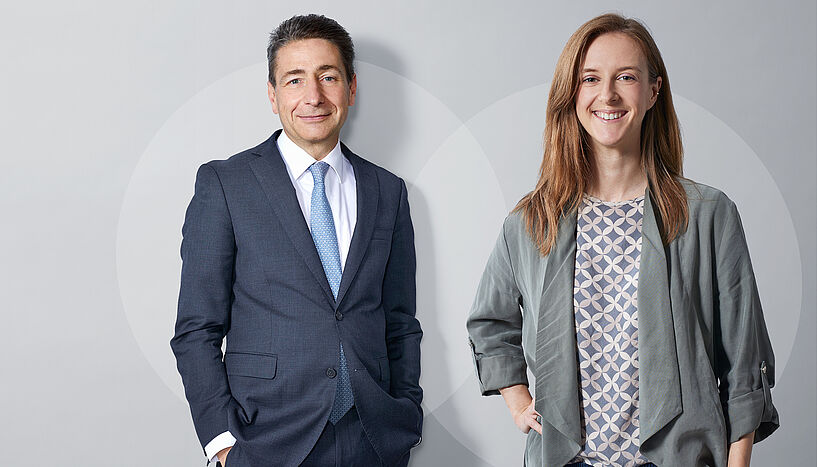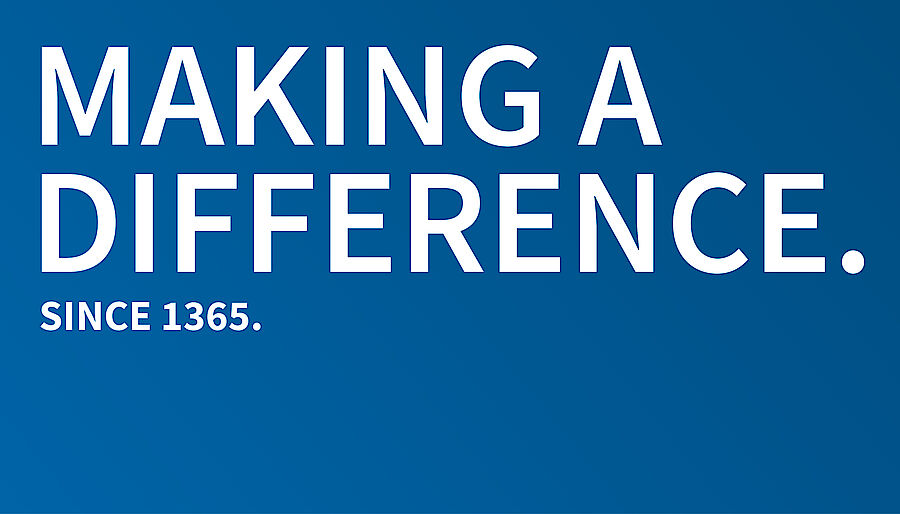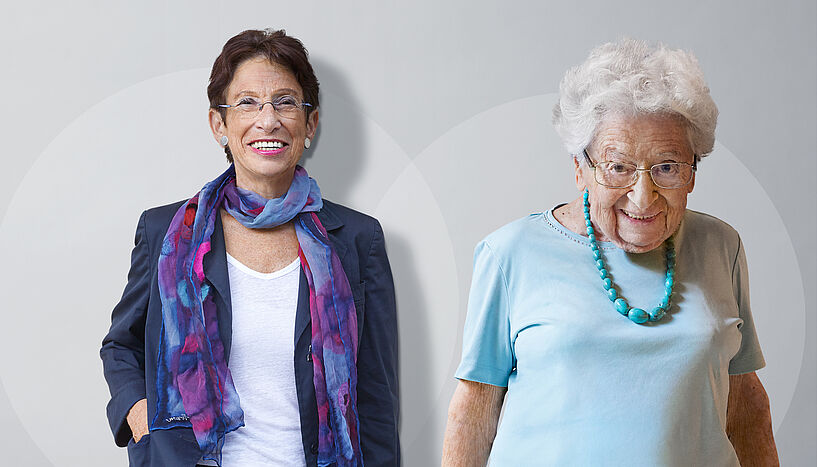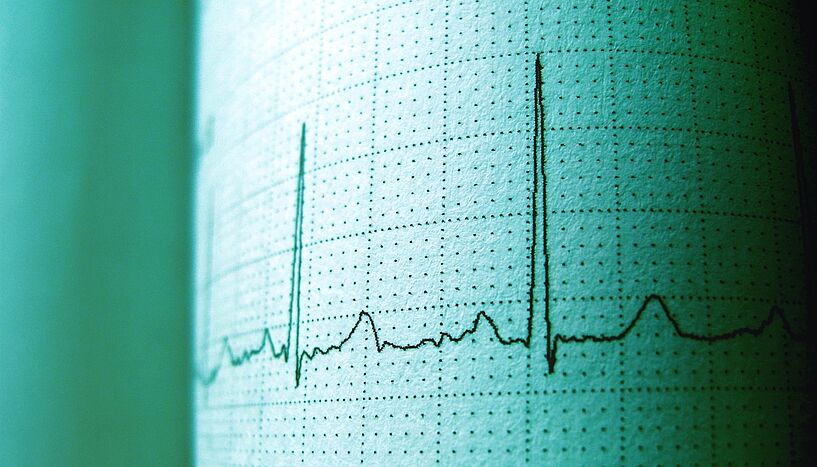Digitalisation is making a difference: Who controls our data?
| 09. Dezember 2020
Alumna Silke Graf and legal IT expert Nikolaus Forgó talk about data sovereignty and digital tools. (© Gerhard Schmolke)
The University of Vienna alumna Silke Graf and legal IT expert Nikolaus Forgó contribute their expertise to current debates. In the interview, they talk about data sovereignty, digital tools in legal practice and expectations about future legal professionals.
In a nutshell
- Considering data protection from the beginning: Academic expertise and legal instruments guarantee the compliance with fundamental rights in digital development.
- Digitalisation is making a difference: Legal professions are becoming more digital and working processes are automated.
- At the University of Vienna, future legal professionals are prepared for digital challenges.
uni:view: Silke Graf, after graduating from the University of Vienna and completing your training as a lawyer, you have joined PwC Legal where you deal with the digitalisation of law. What does this mean?
Silke Graf: As Head of Legal Tech, I try to automate processes of legal counselling by means of digital tools and make them more efficient. Let me illustrate this with an example from everyday business: If employees are not sure if they are allowed to accept a gift from a customer, the company’s legal department always has to ask the same questions to reach a decision. A digital tool that can be accessed online 24/7, asks these questions in an automated way, provides an immediate answer to the users and, additionally, the case is also documented.
uni:view: Nikolaus Forgó, and you provide the theoretical foundation at the Department of Innovation and Digitalisation in Law at the University of Vienna?
Nikolaus Forgó: Exactly. We conduct research on aspects, such as e-commerce law and consumer protection law, in addition to innovation in legal professions and legal tech. The theories that we develop in research have to be tested and applied in practice, of course. This is also the reason why we need people like Silke Graf.
Making a difference. Since 1365.
The University of Vienna cooperates with the business world, culture and society in research projects. About 10,000 students graduate from the University of Vienna every year. The University prepares them for a professional career and encourages critical thinking and self-determined decision-making. As part of the thematic focus ‘Making a difference. Since 1365’, we demonstrate the manifold ways in which the University of Vienna contributes to our society.
Data sovereignty as part of digitalisation
uni:view: What about the law in digitalisation?
Nikolaus Forgó: One of the aspects which we address in this context is data sovereignty: Who controls our data? Our task as legal experts is to guarantee, by means of legal instruments, that fundamental rights positions are not (do not have to be) given up as part of technological development. I am a member of a project, for example, that develops smart police helmets: A helmet with an integrated display should show the police officer who is the person vis-à-vis and if the person already has a criminal record. Is this compatible with fundamental rights? It depends. And our job is to determine on what it depends concretely.
Coronavirus: How it changes our lives
From transformations in our family life to the impact on logistics chains: Experts of the University of Vienna discuss the consequences of the coronavirus in different areas. (© iXismus/Pixabay)
To the coronavirus dossier
uni:view: Speaking of fundamental rights: What do you think of current discussions about location tracking and coronavirus apps as a legal IT expert?
Nikolaus Forgó: I am an academic member of the Data Protection Council, an advisory body for the Austrian Federal Government. In this role, I prepared an expert opinion on tracing apps. In this opinion, I explicitly argued for adopting a law that guarantees for a voluntary use of a coronavirus app. In the beginning, I was marginally involved in the development of NOVID-19, a tracing app that considers data protection right from the beginning, which means that it tries to reach privacy by design. In Georgia, to my knowledge, this app is already in use. In other countries, it will possibly be implemented soon. But I have to confess that by now, an app is near the bottom of my personal list of things that we need for combating the coronavirus. For example, we often do not wear a mask or do not follow the face mask recommendations, although these would be such easy and fundamental rights-friendly measures. If we really need an app, against this background,... I do not know.
Silke Graf: This shows a marked imbalance: Wearing a face mask is considered as being more restricting than an app that tracks our location. Data protection is a topic attracting media attention, a topic about which many people quickly form an opinion. But they do not see the consequences of some decisions.
uni:view: Silke Graf, COVID-19 has boosted digitalisation. Which changes do you see in your area?
Silke Graf: Many new and exciting ideas were produced. But due to the current economic crisis, enterprises are, understandably, very reluctant to make investments in projects that are not considered absolutely necessary. The legal sector is becoming more open-minded toward technology and innovation, but there is still a long way to go.
Why study Law at the University of Vienna?
The University of Vienna offers a wide range of courses and degree programmes. With more than 180 degree programmes at 15 faculties and 5 centres, it is the largest university in the German-speaking countries. As part of the ‘Humans of University of Vienna’ series, students explain what student life at the University is all about and why they decided to study at the University of Vienna.
Digitalisation: Expectations about future legal experts
uni:view: How can we lay the foundation for a new mindset already in the education?
Nikolaus Forgó: I invite representatives from practice, time and again, to my courses, such as partners from Facebook, Google and Microsoft but also from small and medium-sized enterprises in Europe. They describe real problems and the students adopt a legal approach to these problems. The things they learn from us, are applied by and have an impact on society. In the framework of hackathons, students develop concrete tools and apps for current issues that later meet a market. This way, for example, ris+ has been developed, a search engine for legal acts that is intended to make the Rechtsinformationssystem des Bundes (RIS, the legal information system of the Republic of Austria) more usable, or hatefree.net, a digital toolbox for victims of Internet crimes.
Silke Graf: I studied at the University of Vienna and completed the postgraduate programme in Information and Media Law in 2016. This has broadened my horizon and showed me all the things we can do with law. It is really important that students already get in touch with digital topics during their education because graduates will be confronted with exactly these topics in practice.
Nikolaus Forgó is professor at the Department of Innovation and Digitalisation in Law at the University of Vienna and conducts research on all questions of IT law, especially data protection law and data security law. He is, among others, advising the European Commission, the Deutsche Forschungsgemeinschaft, the German Ethics Council and various ministries in Germany and Austria. In the podcast "Ars Boni: Corona and Law" he is exploring the legal implications of the corona crisis with different national and international guests.
Silke Graf studied Law at the University of Vienna and completed the postgraduate continuing education and training programme in Information and Media Law, which is supervised by Nikolaus Forgó. Since 2019, she is Head of Legal Tech at PwC Legal Austria. For her achievements, she was awarded the Woman of Legal Tech Award in 2018.




